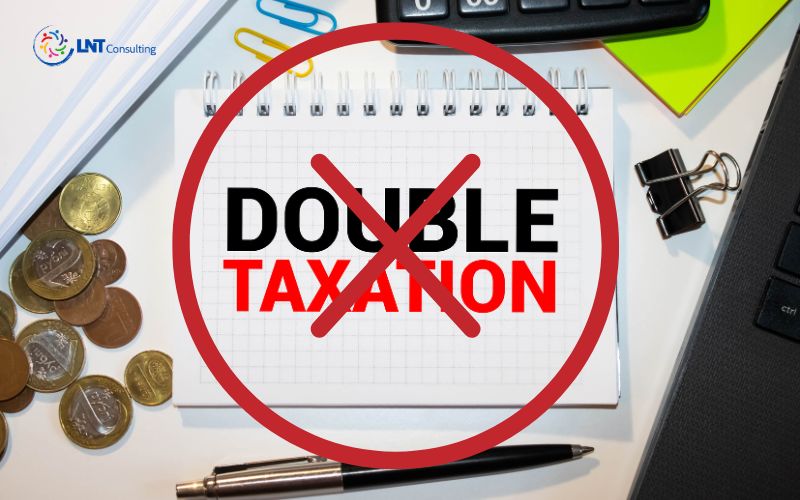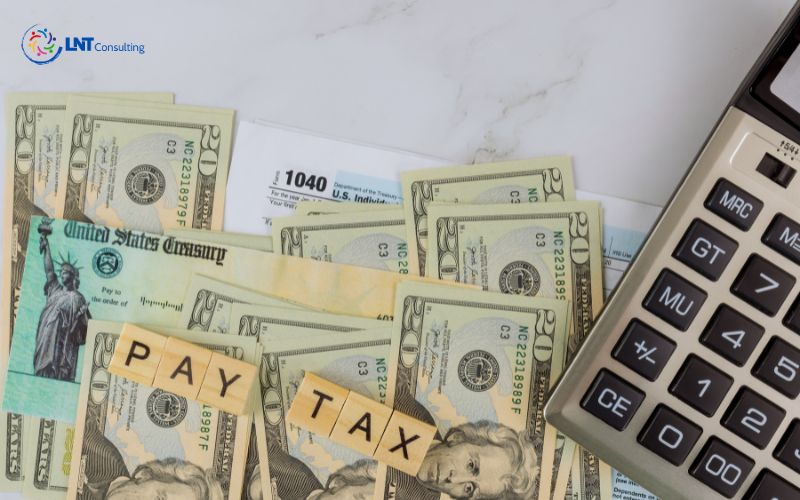Renowned for its robust business environment, streamlined regulatory processes, and stable political climate, Singapore offers favorable corporate tax incentives that make it an attractive destination for both local and international businesses. Whether you are a start-up or an established enterprise, understanding the corporate tax landscape is crucial for business operation. This guide from LNT Consulting will help you understand a comprehensive overview of Singapore’s corporate tax system, not only ensures compliance but also effectively manages your tax strategies and capitalize on the advantages of doing business in Singapore.
Corporate tax in Singapore

Companies (Private Limited Company) are taxed at a flat rate of 17% of its chargeable income (after deducting tax-allowable expenses), even when it arises from Singapore or foreign sourced incomes.
Qualified new start-up companies can apply for the tax exemption scheme if:
- The company is established in Singapore.
- The company is a tax resident of Singapore for that Year of Assessment (the business is controlled and managed inside of Singapore).
- The company has share capital directly held by less than 20 shareholders. All must be individuals or at least 1 individual holds 10% original of the share capital.
Note:
IRAS will consider all factors provided by the companies to determine whether this company is managed and controlled in Singapore, including but not limited to:
- Location of the company’s Board of Directors meeting
- Schedule and organize the meeting of the Board of Directors
- Key employees must base inside of Singapore
- Strategic decision is made by local director in Singapore
Qualified companies enjoy corporate tax exemption in the first 3 Year of Assessment below:
| Taxable Income | % Tax exemption |
| First 100,000 SGD | 75% |
| Next 100,000 SGD | 50% |
From the 4th year of assessment onwards, qualified companies can enjoy the partial corporate tax exemption schemes.
| Taxable Income | % Tax exemption |
| First 10,000 SGD | 75% |
| Next 190,000 SGD | 50% |
Determining Financial Year End

In Singapore, you are free to choose the financial year end that is best suited for your business operations. The basic period is generally a 12-month.
Choosing the Fiscal year end (FYE) is important because it sets the deadlines for your annual corporate tax filings. AGM (Annual General Meeting) is due within 6 months after FYE while AR (Annual Return) filing is due within 7 months after FYE.
You can choose any date for your company’s FYE. Common options are 31 March, 30 June, 30 September, or 31 December. But note that the first FYE should not be longer than 18 months. Newly qualified incorporated companies often set their FYE on the last date of 11 months since the incorporation date to maximize corporate tax benefits.
If there is any change in the FYE, companies must notify the Registrar and file documents for the changes accordingly. However, it’s unable to change the FYE if deadlines for the holding of Annual General Meeting and Annual Return filing have passed.
Tax incentives and Avoidance of double taxation agreement

Tax incentives
There are 4 main government agencies that offer tax incentives for specific sectors of Singapore companies including:
- Singapore Economic Development Board (EDB) – is responsible for strategies to strengthen Singapore’s role as a global hub for business, innovation, and talent.
- Inland Revenue Authority of Singapore (IRAS) – the tax regulatory authority in Singapore
- Enterprise Singapore (ESG) – drive enterprise growth, support innovation, promote Singapore as a global trading hub and enhance trust in its products and services
- Monetary Authority of Singapore (MAS) – the Singapore central bank and financial services authority.
A list of industry-specific incentives can be found on the websites of these agencies such as:
- Research and Development;
- Shipping and Maritime;
- Fund Management;
- Insurance;
- Trade fairs;
- Pioneer Industries;
- Businesses industries related to Insurance and Reinsurance;
- Legal firms;
Double taxation agreement (DTA) avoidance
Double taxation results when the same source of income is being taxed twice in 2 different countries. Singapore has signed Double Taxation Avoidance (“DTAs”) with around 100 jurisdictions.
Only Singapore tax residents and eligible DTA partners can benefit from double tax avoidance (DTA). You may still be subject to taxation in your home country upon receiving income from Singapore. However, if there is a DTA agreement between Singapore and your country, you may be able to claim DTA benefits for a reduced corporate tax rate or tax exemption.
Corporate Income Tax Filing

Companies are required to report the income tax returns to IRAS (Inland Revenue Authority of Singapore) by 2 forms:
- ECI (Estimated Chargeable Income): Declare the estimated taxable income of the company in a year of assessment. All companies will receive the filing notification before the date of fiscal year. This form must be filed within 3 months from the date of financial year end.
- Form C/S or C/S Lite or C: Report the company’s actual taxable income for a tax year (YA). The filing notification will be sent by May of each year, and each company must file form C/ C/S or C/S Lite by 30 November every year.
Note:
– The notification will not be sent in the 1st year of incorporation. However, if your company closes its 1st set of accounts in the year of incorporation, you still need to file ECI and Form C; C/S or C/S Lite even if you do not receive any filing notification.
– No need to file ECI if your company meet 2 below requirements:
- Annual revenue is <= $5 million in YA; AND
- ECI is nil in YA
Conclusion:
Singapore’s favorable tax regime, highlighted by its competitive corporate tax rates, various tax incentives, and extensive network of double tax agreements, provides numerous benefits for companies operating within its borders. Keeping up-to-date with the latest tax regulations and consulting with experts when needed will enable companies to make informed decisions, optimize their tax positions, and thrive in Singapore’s business-friendly environment.
Disclaimer: LNT Consulting aims to provide up-to-date and accurate information on this website. However, this information is intended for reference only and should not replace professional legal advice. For guidance on your specific case, please contact LNT’s customer service.





